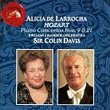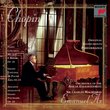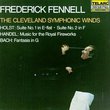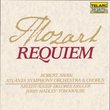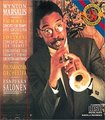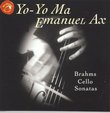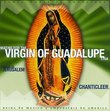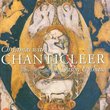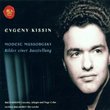| All Artists: Zoltan Kodaly, Boris Blacher, Edward Elgar, Georg Solti, Vienna Philharmonic Orchestra Title: Elgar: Enigma Variations; Kodaly: Variations on a Hungarian Folksong Members Wishing: 0 Total Copies: 0 Label: Decca Release Date: 10/14/1997 Genre: Classical Styles: Historical Periods, Modern, 20th, & 21st Century Number of Discs: 1 SwapaCD Credits: 1 UPC: 028945285320 |
Search - Zoltan Kodaly, Boris Blacher, Edward Elgar :: Elgar: Enigma Variations; Kodaly: Variations on a Hungarian Folksong
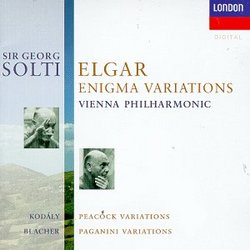 | Zoltan Kodaly, Boris Blacher, Edward Elgar Elgar: Enigma Variations; Kodaly: Variations on a Hungarian Folksong Genre: Classical
|
Larger Image |
CD DetailsSimilarly Requested CDs
|
CD ReviewsA unique combination. Marcus K. Maroney | 05/21/1999 (5 out of 5 stars) "Solti has a special sense for this music as well as special relatioship with the Vienna Phil. This combination results in some marvelous muisc. This Enigma far outruns his Chicago Sym. version-there is more warmth in the palying and a much less hurried pace." Golden Jubilee... Mr Bassil A MARDELLI | Riad El-SOLH , Beirut Lebanon | 04/19/2008 (5 out of 5 stars) " The Hungarian-British Georg Solti was one of the prominent conductors in the twentieth century. In 1971 Sir Solti was awarded Honorary Order of the British Empire. In addition, many times he received Grammy Awards on his superior orchestral and operatic conducting skills chiefly derived from experience and hard work. Solti was born in Hungary-Budapest (1912) - his mother country - where he mastered the piano at Franz Liszt Academy. His father decided to change the surname from "Stern" to Solti in order to guard against possible anti-Semitic feelings. Solti's first appearance as full-fledged conductor was in 1938 at the Budapest Opera House where he performed Mozart's - The Marriage of Figaro, just one year prior to the eruption of the Second World War. He fled Hungary to Switzerland - 1937 - following upon the initial drums of WWII. In Switzerland he continued his career as pianist, with very little conducting. Solti's agreement with Los Angeles Philharmonic to be music director opened the door for more conduction performances to come, however, one year after, he resigned his post in protest to the appointment of Zubin Mehta - at 26 - as assistant conductor without his knowledge,(subsequently, Mehta took Solti's job as music director)...... Thereafter he spent most of his time in the United Kingdom where he was appointed music director at the Royal Opera House until 1971. ((His cohorts dubbed him The Screaming Skull because he grew bold-headed and due to his persistent demanding rehearsal style)). Perhaps he wanted to be as perfectionist emulating Herbert von Karajan. Solti missed the 1000 distinctive mark by only one. He conducted 999 performances and his one thousandth was scheduled for October 1997 to fall around his 85th birthday, alas that was never to come. Solti's main performances were for Mozart, Brahms, Beethoven, Bruckner, Mahler, Strauss, Wagner, Stravinsky, Tchaikovsky, Bartok, Debussy, Dvorak, Handel, Bizet, Elgar, and Verdi. In this recording by Vienna Philharmonic Orchestra, Solti is no less distinguished. Hungary still embedded in his heart, prompted him to transform, elegantly, music that explains his days as he cut through across the continents, changing his name and mother-country, in the face of anti-Semitic feelings and ultra-Western nationalism. Solti could feel this in Zoltan Kodaly's Variations on a Hungarian Folksongs - The Peacock - embodying Hungarian nationalism. Boris Blacher composed his Variations on the theme of Paganini in 1947, for solo violin. Edward Elgar's on Enigma variations with their melancholic themes. I gave it five stars, wouldn't you? " Excellent late recordings Marcus K. Maroney | 12/29/2004 (5 out of 5 stars) "The Blacher is a great piece, easily the equal of Rachmaninoff's variations on the same theme. The jazzy passages are brought off with panache by the Viennese musicians. The Kodaly is a reading that highlights the dynamic and orchestrational contrasts in the work - it is quick and doesn't dwell anywhere, lending an almost neoclassical feel to the score. The Elgar is a winning rendition - I'm not quite sure what kind of system the reviewer who said the timpani weren't very audible was using, but on my relatively inexpensive one, they are very audible and thrilling where appropriate. Some buyers might be seeking a version with a slow, schmalzy performance of the celebrated "Nimrod" variation - this one flows beautifully and builds to a tremendous climax but doesn't wallow. The recorded sound is all-around splendid - warmer and fuller throughout all ranges than Solti's Chicago recording of this piece."
|

 Track Listings (17) - Disc #1
Track Listings (17) - Disc #1